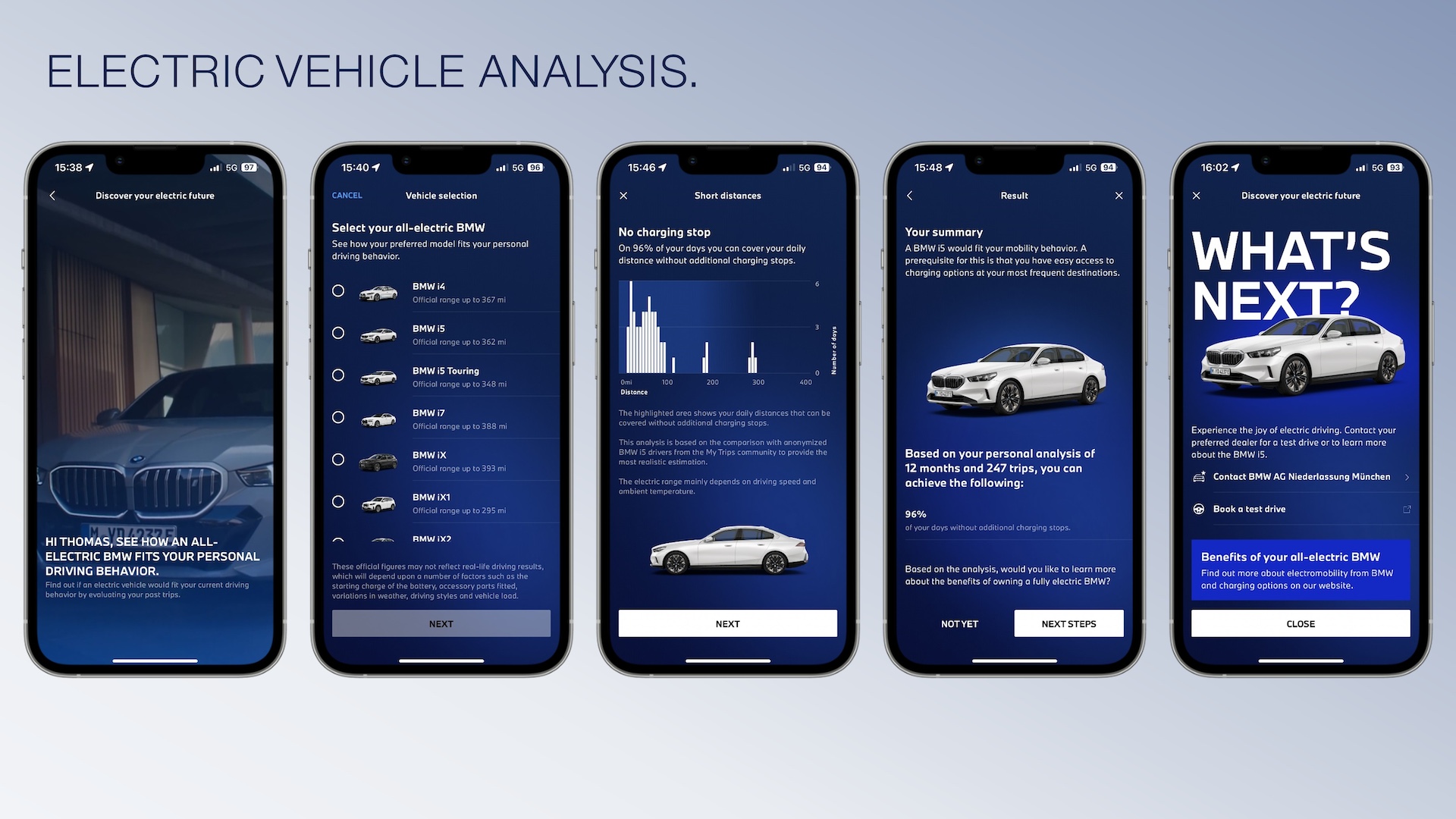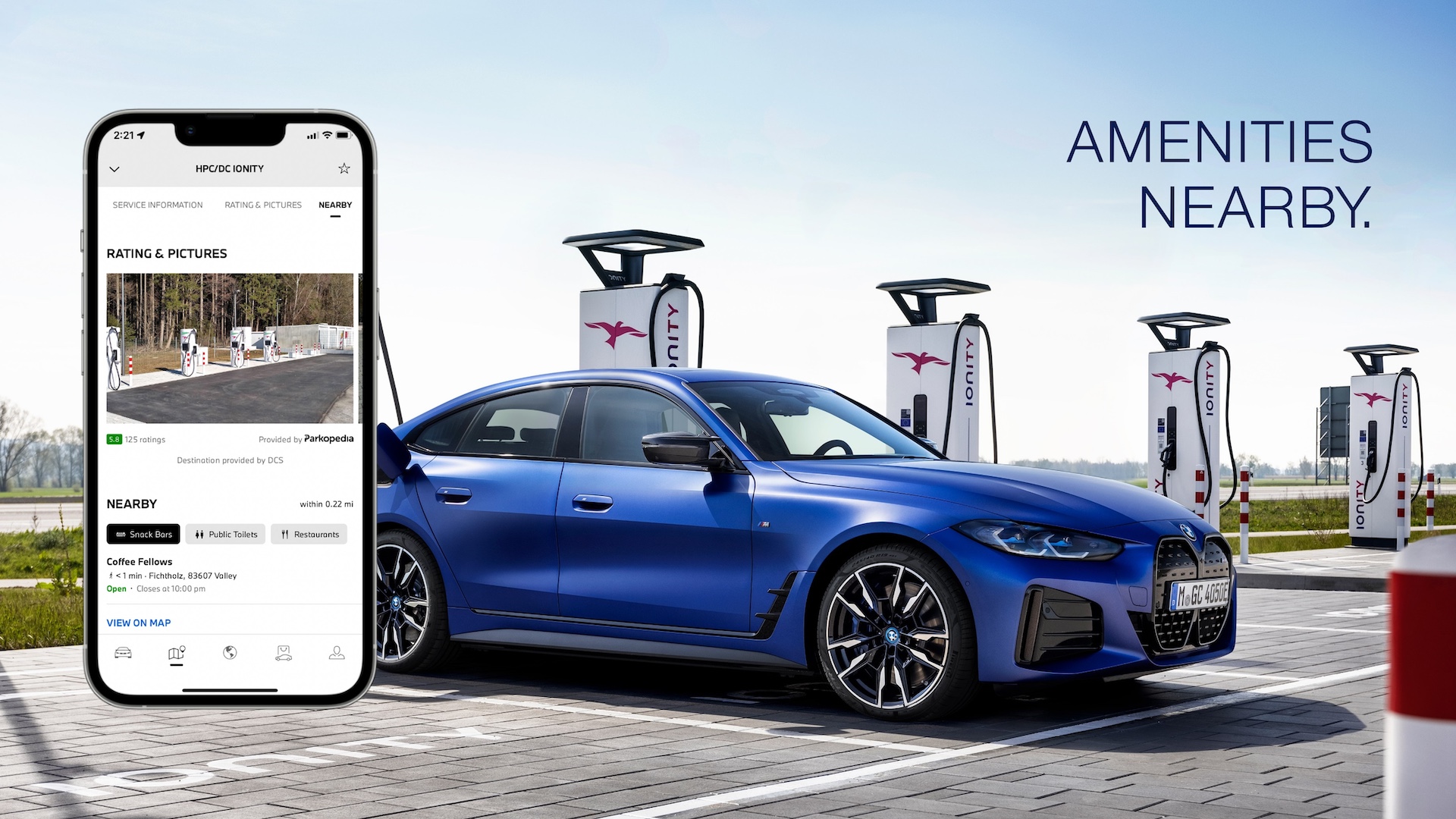BMW’s app now tries to convince combustion engine owners that EVs will work for them
Can graphs and data tempt owners away from fossil fuels?

The BMW Group, which comprises both the BMW and Mini brands, has just launched the latest update to its partner smartphone app, with added functionality that aims to convince petrol and diesel owners that EVs will work for them.
BMW’s latest tool, which it refers to as the Electric Vehicle Analysis function, is designed to simulate how well an electric BMW would suit the current owner’s regular driving habits and overall lifestyle.
All the user has to do is register the app with their combustion engine vehicle, so long as it is running BMW Operating System 7 or later, and then undertake at least 200 journeys, covering an overall distance of at least 2,000 kilometers (approximately 1,250 miles).
After selecting one of BMW’s EV alternatives as a comparison car, the app will then crunch these numbers and determine how many of those journeys could have easily been completed on a single charge.
The German automaker says the function is designed to "combat the range anxiety and concerns about the everyday practicality of all-electric vehicles". Not only will the app suggest pure EVs, it will also consider hybrid models should the user’s regular driving patterns require the additional range.
In addition to this, the BMW Group has also unleashed a number of EV-focused updates for both the My BMW and My Mini apps, such as the ability to select charging-optimized route planning via the smartphone, rather having to do it in the vehicle.
The apps also notify the user of facilities in the vicinity of charging stations, such as restaurants, cafes, banks and supermarkets, complete with detailed information on them, so EV owners don’t have to hang around during battery top-ups and can make them coincide with other life chores.
Get daily insight, inspiration and deals in your inbox
Sign up for breaking news, reviews, opinion, top tech deals, and more.
BMW says 13 million customers around the world use the My BMW App and Mini App, taking advantage of real-time features, such as the live payment tariffs of charging facilities in the immediate area.
Analysis: The push to make the jump

BMW’s recent app addition is a clever ploy to highlight how few regular journeys actually require a stop to charge an EV battery pack.
Granted, the app admits it makes a a few pretty major assumptions when suggesting an all-electric alternative, such as that potential owners have easy access to charging options at most frequent destinations.
Plus, it assumes that EV owners will have the ability to charge their vehicles at home over night, so the batteries are fresh for upcoming journeys.
Despite all this, the app cleverly makes it glaringly obvious that only a very small percentage of regular drives require additional charging stops – something that a big, bold graph could help EV skeptics to understand.
Naturally, the app then subsequently suggests the perfect BMW EV for the user’s driving style and will even facilitate a one-click test drive with a local dealer to get butts on seats and cars off the forecourt.
You might also like
- Tired of confusing EV charging stations? The Omni Port promises to banish bulky adapters to the history books
- I tried Mini's next-gen OLED infotainment system – and it proves that digital doesn't have to mean soulless
- Hurrah! Fiat's next EV will be the first with built-in charging cables – and that's a smart idea

Leon has been navigating a world where automotive and tech collide for almost 20 years, reporting on everything from in-car entertainment to robotised manufacturing plants. Currently, EVs are the focus of his attentions, but give it a few years and it will be electric vertical take-off and landing craft. Outside of work hours, he can be found tinkering with distinctly analogue motorcycles, because electric motors are no replacement for an old Honda inline four.